Diversity in the Mountains at the Great Lakeland 3 Day
This article was originally published in the Summer 2024 issue of BMC Summit magazine.
Update: ESEA Outdoors UK member Charmaine shares her own reflections on her blog.
The outdoors is changing, and this running and hiking event is at the forefront of championing diversity in the sport. Andrew Wang, founder of ESEA Outdoors UK, shares his story
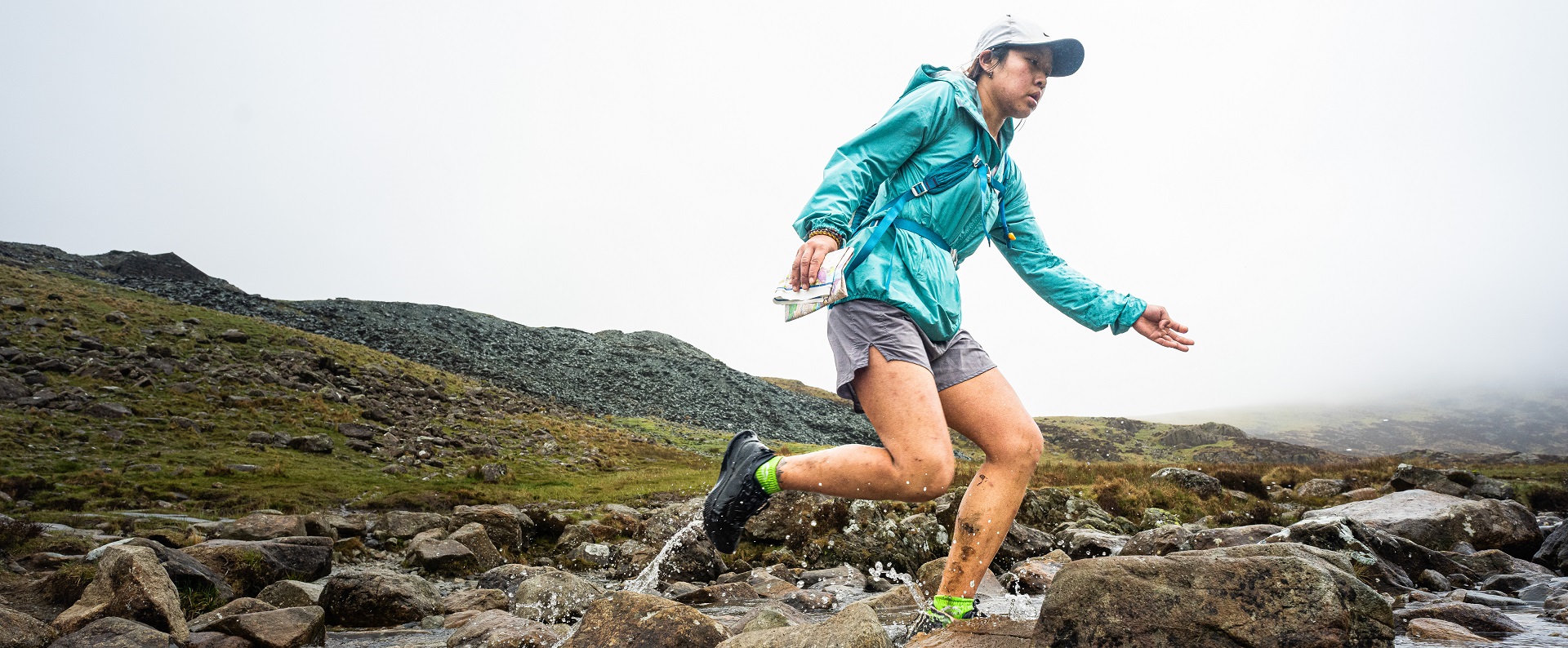
Photo: © Great Lakeland 3 Day | Steve Ashworth
Legs heavy from a second 20 mile day navigating over the Buttermere fells, I sat down on stage in front of the audience that’d started to gather for my evening talk in the marquee at the Scarpa Great Lakeland 3 Day (GL3D). Up until recently, as a person of East & Southeast Asian (ESEA) heritage, I’d never felt a sense of belonging at mountain running events. Now, looking back at the community who’d shown up to listen to my experiences, I began to feel like the sport was finally starting to change.
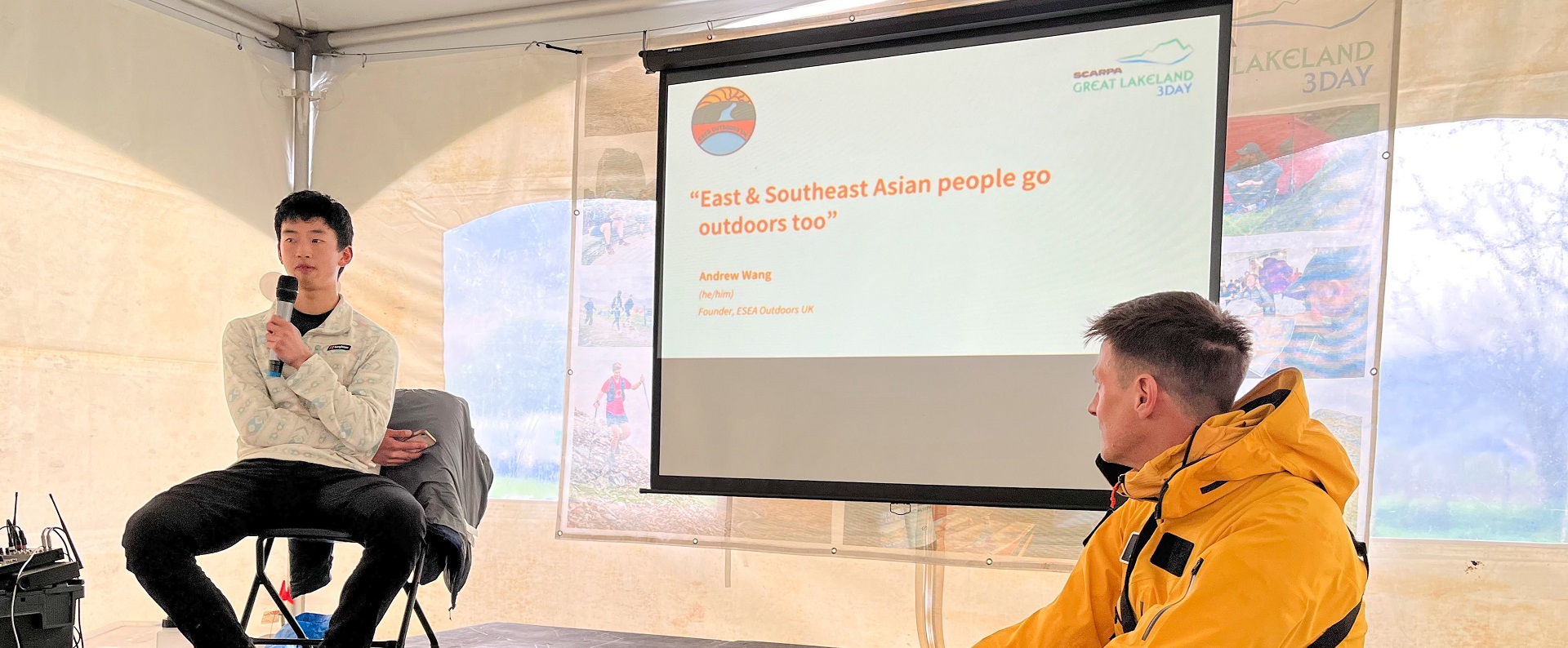
ESEA Outdoors UK is a grassroots community for outdoors enthusiasts united by a feeling of isolation in a space where our faces aren’t traditionally seen. It was via a mutual friend, Mary-Ann Ochota (the BMC’s hillwalking ambassador), that led Ourea Events to invite us to GL3D, an adventurous but friendly navigation challenge run by an amazing and supportive team. Despite walking and running in the hills my whole life, I’d never run a multi-day race before. Participating as a community, seeing fifteen friendly Asian faces in a sea of white, was transformative. Shane Ohly, CEO of Ourea Events, prefaced my talk, saying, “Many of the ESEA Outdoors folk were already experienced outdoor people, but we identified that the most significant barrier to attending was the perception that ethnic minorities might not be welcome, so we took tangible actions and made a deliberate effort to remove those barriers”.
Tackling racism and underrepresentation
An audience member, a regular volunteer, raised his hand. “Don’t we all face the same barriers?”. Yes, we all need the minimum kit and navigational experience, and we all face financial barriers. But I remind the audience that racism is still alive and kicking in outdoors spaces, a fact from which the mountain running community can no longer shy away. Earlier on, one of our Scottish members was complimented on her English by another runner. Another member later told me: “Every time I come to the fells I absorb casually racist remarks; I’ve developed resilience, but it still hurts. This weekend, in a group, it feels safe, like I could put my guard down for a bit”.
A sense of belonging
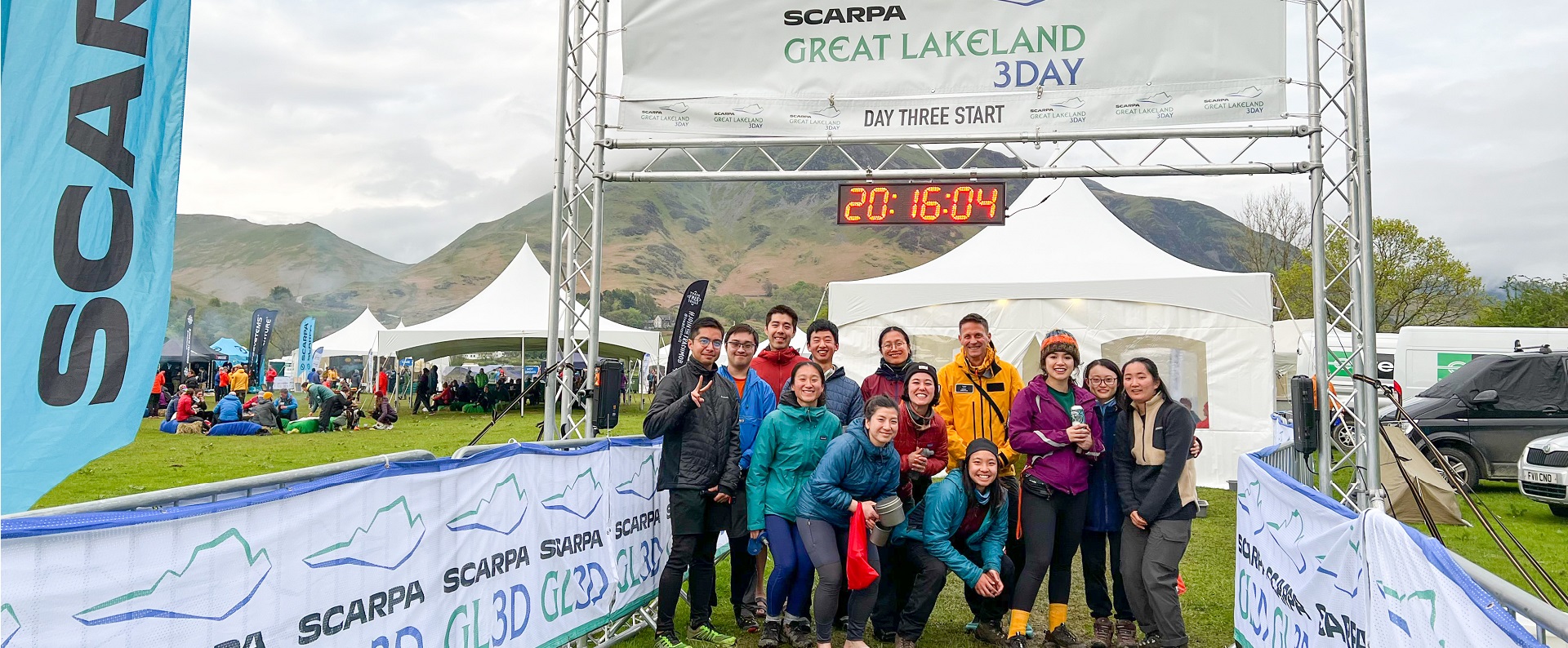
But we also face perceived barriers. Our friend over at Black Trail Runners passionately answered the volunteer’s question. Shahinara Craveiro said: “As the only non-white runner at my local club, they don’t even believe me when I recount racism”. We barely began to tackle the deeper issues during my talk. “Equalising access is an important step towards improving mental health”, one of our members wrote after GL3D. Up on these familiar fells where I find solace, I realise that only by tackling our underrepresentation have I finally gained a sense of belonging here.
Business as usual?
As my talk went on, there was a growing sense of, “great, but why should I care?” There are so many answers to this question. Diversity is good for outdoors businesses, and grassroots communities engage with massive, previously unreached audiences. Those that disregard diversity lose out on modern audiences who care about social and environmental issues. Walking around camp, I spoke to Trash Free Trails about their Hardly Reached Communities programme. They told me, “More people are trying out trail running; if you want them to treat nature with respect, they must feel a belonging to the landscape which is only achieved by making them feel welcome at events like this”.
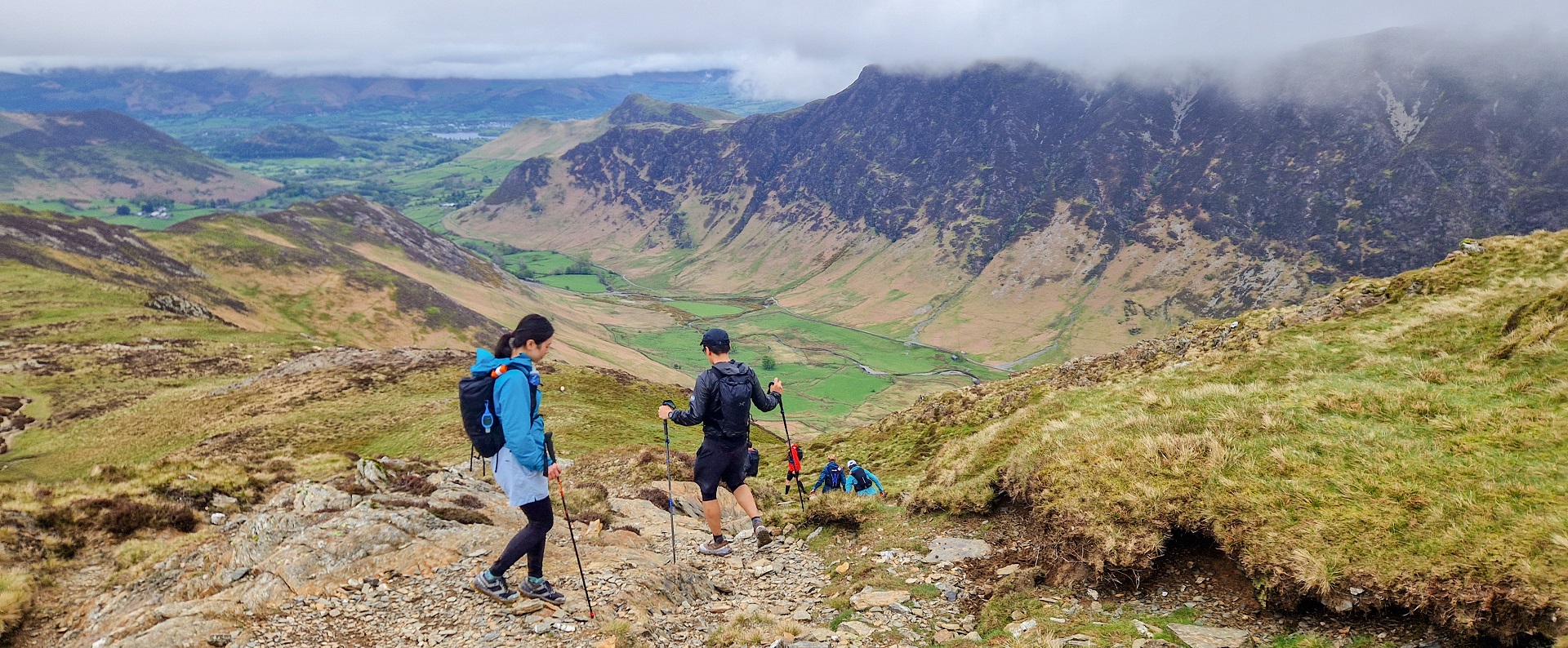
Systemic change
Building diversity is hard, complex and nuanced. For an internationally respected events company to put their head above the parapet and use their position of power to have an uncomfortable conversation is admirable. As Shane put in his Director’s Report, “It’s insufficient to be silently not racist: you must be anti-racist in both actions and words”. Diversity is not just a one-off, and it takes commitment to grassroots communities to achieve systemic change. We’re already so excited to make a return in 2025. 🟡
What can I do?
- Follow ESEA Outdoors on Instagram @eseaoutdoorsuk
- Educate yourself by checking out hubs like All The Elements.
- Advocate for anti-racism at your club, on the hills and at the crag.
- If you’re a business, reach out. Communities like us can’t enact systemic change alone.
Meet the writer
Andrew Wang is a fell-runner, data scientist and activist based in the Scottish Borders. Andrew grew up running on gritstone edges in the Peaks and now spends his time exploring local Scottish trails and hills. Get in touch or find him on @eseaoutdoorsuk
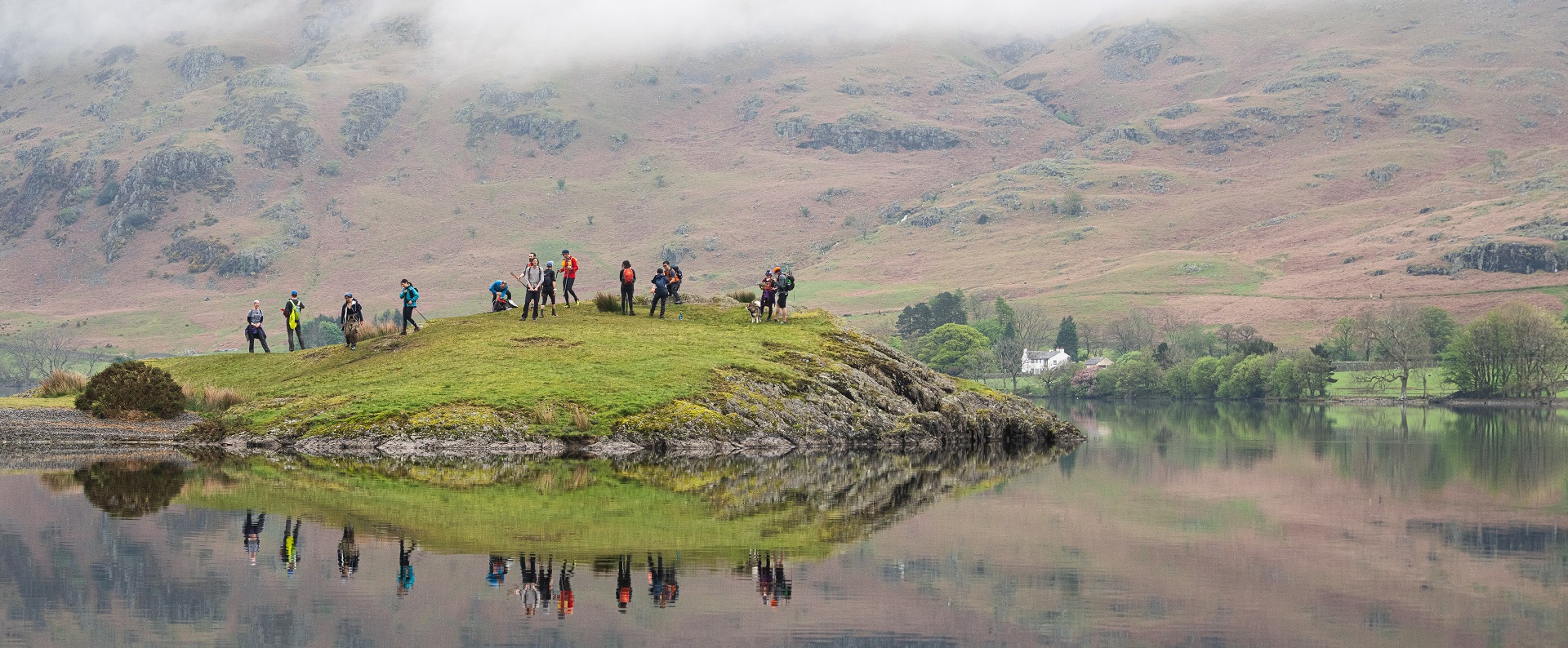
Photo: © Great Lakeland 3 Day | Steve Ashworth. Other photos: Robin Ogura, Charlotte Eccles, Ingrina Shieh.